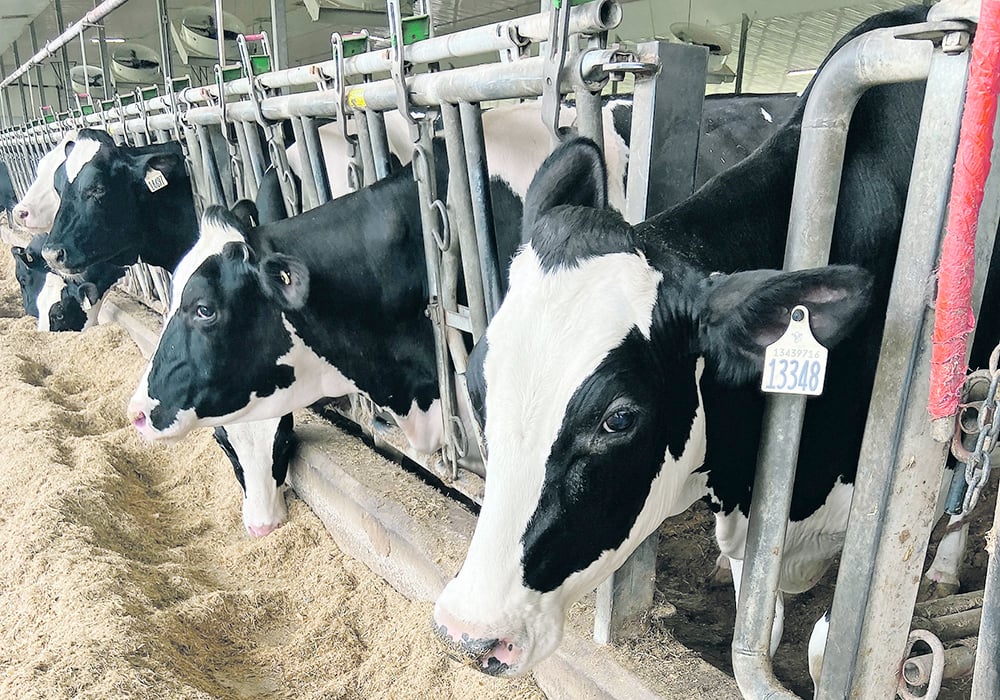U.S. farmers’ testing refusal skews bird flu count

The U.S. avian flu outbreak in dairy cattle is much larger than official figures suggest, due to farmers’ reluctance to test their animals and risk the economic consequences of a positive result, according to interviews with dairy experts, veterinarians and farmers in six states with known cases.
Read Also

Federal government renews $100M grant for Canadian Foodgrains Bank
The Canadian Foodgrains Bank is welcoming the renewal of a $100-million federal grant to provide emergency food assistance.
The U.S. Department of Agriculture has counted bird flu in about 190 dairy herds in 13 states since March.
The virus’s jump from birds to cows heightened concerns that it could adapt to spread among humans. Scientists warn that limited surveillance could weaken the United States’ ability to respond to further human spread.
Thirteen dairy and poultry farm workers have been infected with bird flu this year, according to the Centers for Disease Control and Prevention.
Reuters spoke with more than a dozen researchers, veterinarians, farmers and livestock industry groups to understand whether the virus’s spread in dairy cattle is being accurately tracked.
State animal and human health experts in three states who work closely with veterinarians and farmers said the government tally is likely an undercount because farmers fear the economic hardship brought by a positive test, after which they may be restricted from selling milk or cattle for weeks.
“While we have nine official positives, there are many, many, many more farms that are impacted or infected that are just not testing,” said Joe Armstrong, a veterinarian and cattle expert at the University of Minnesota. A more accurate cattle case count for Minnesota would be three to five times higher, he said.
A USDA spokesperson said the department has encouraged testing by requiring negative tests for cows being shipped over state lines since April and offering a voluntary program for testing farmers’ milk supplies weekly.
Twenty-four dairy herds are participating in that program of roughly 24,000 farms nationally that sell milk, according to USDA data.
Six farmers, veterinarians and other experts said farmers are reluctant to test because they do not believe the virus is a serious concern or because government incentives to test do not offset expected losses.
Colorado farmer Terry Dye said his two dairies were infected this summer and he did not notify the state because he wanted to handle it privately. State agriculture officials eventually heard about the infections and quarantined his animals, he said.
“Sometimes it’s more convenient to not know,” said Dye.
USDA offers to compensate farmers with infected animals for veterinary care and 90 per cent of lost milk production. Forty-seven herds have signed up for agency financial assistance, though that total includes farms without infections that are seeking support for biosecurity costs.
USDA tests raw milk from cows to identify the virus in herds. To better track the spread, experts said more states should mandate raw-milk testing or offer higher compensation to farmers.
Michigan and Colorado have taken aggressive approaches to contain bird flu in cattle, though experts still think cases are being missed.
Phil Durst, an educator with Michigan State University who has spoken with farmers with affected herds, said Michigan’s 27 positive herds are likely an undercount by at least a third.
Jenna Guthmiller, an assistant professor of immunology at the University of Colorado who has studied the virus, said Colorado’s 63 positive herds are also likely an undercount.
After a series of outbreaks, Colorado on July 22 became the only state to require dairy farms to test bulk supplies of milk each week. The tests have uncovered 10 infected herds that have been quarantined.
Some farmers do not test because they distrust government officials or information about the risks of bird flu to cattle and humans, four sources said.
“There’s plenty of dairy farms that I’ve heard about that just don’t believe it,” said Jason Schmidt, a dairy farmer in eastern Kansas.
Wisconsin, the No. 2 milk-producing and top cheese-producing state, has not reported any bird flu cases in cattle. Dairy farmers likely would not test even if they suspected symptoms in their herds, said Keith Poulsen, director of the Wisconsin Veterinary Diagnostic Laboratory.
“It’s still cheaper to just go through a herd outbreak, recover and move on down the road,” he said.
Source: Farmtario.com

